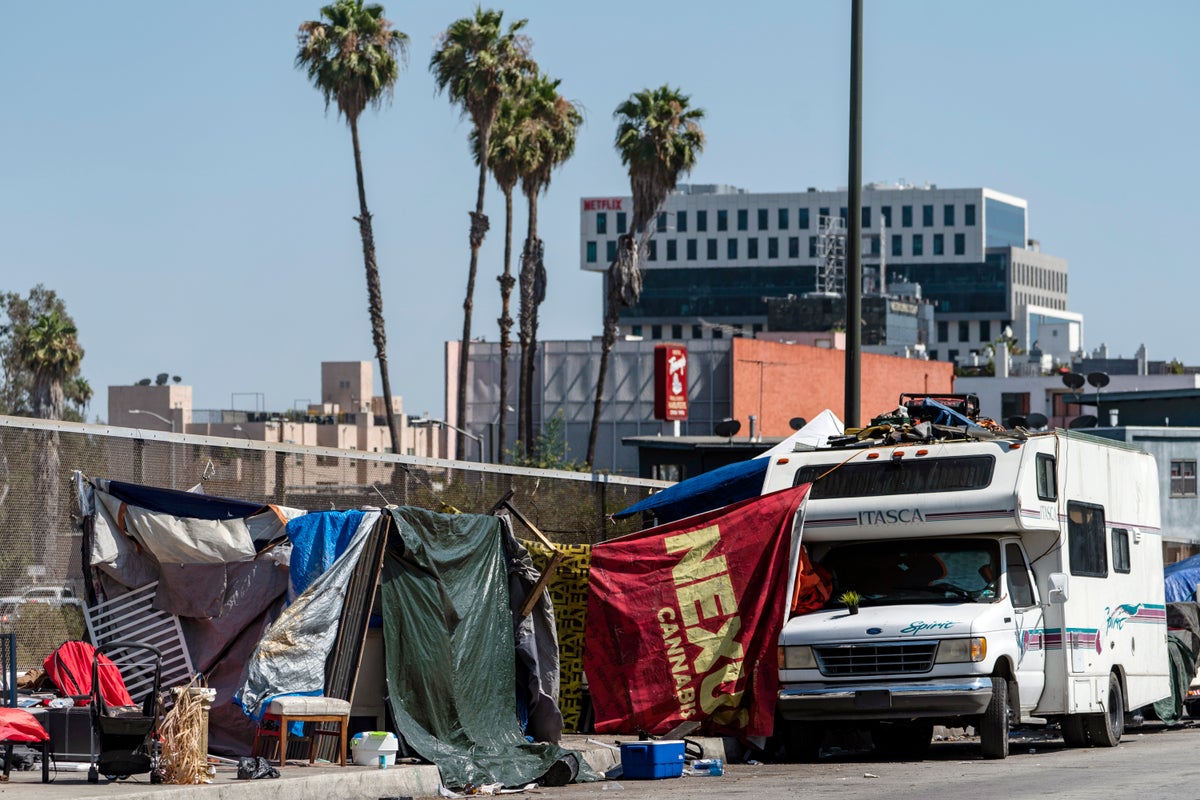
Homeless encampments that have proliferated in nearly every neighborhood of Los Angeles will no longer be allowed within 500 feet (152 meters) of schools and day care centers under a sweeping ban approved Tuesday during a City Council meeting disrupted by protesters who said the law criminalizes homelessness.
The council voted 11-3 to broadly expand an existing prohibition on sitting, sleeping or camping that previously only applied to schools and day cares specified by the council.
The meeting was recessed before the vote when dozens of demonstrators shouted their opposition to the measure and police officers cleared the council chamber. One person was arrested, said Los Angeles Police Department Officer Annie Hernandez said.
Protesters also gathered outside City Hall, chanting “Abolish 41.18," a reference to the law prohibiting encampments on freeway overpasses, around railroad tracks, near loading docks, at libraries and other locations.
The final vote, which applies to the city's public and private schools, came after two previous votes, including one last week that was also interrupted by a raucous protest.
Los Angeles is among many cities struggling to deal with a surge in homelessness and large encampments scattered along sidewalks that have sparked public outcry.
Supporters of the blanket ban said homeless camps pose health and safety threats to schoolchildren, especially because of the disruptive presence of people with drug addictions or mental illness.
“This is something to protect kids in our city,” Councilmember Paul Koretz said before voting for the measure. He said “asking folks in an encampment to move a couple hundred feet” should be be an easy decision if it means children have a safer walk to and from school.
About 750 public school sites are within Los Angeles and nearly 1,000 commercial day care businesses are registered with the city. The new public school year starts next Monday.
Opponents of the ban, including homeless advocates, said it would further criminalize homelessness and waste resources better spent on outreach and connecting people in need to services.
Homeless residents are far more likely to be victims of violence than perpetrators, the nonprofit People Assisting The Homeless, or PATH, said in a statement opposing the measure.
“Enforcement of anti-camping ordinances, then, only displaces people and makes it harder for trained outreach staff to establish trust again. Residents of cleared encampments, unless connected to stable permanent housing through a trauma-informed case management process, often return to unsheltered homelessness,” PATH said in a statement.
The measure must be signed by Los Angeles Mayor Eric Garcetti before it takes effect and his office didn’t immediately respond to phone and email messages seeking comment.
The ban comes as several hotels are set to end their involvement in the state’s Project Roomkey, which paid the hotels to provide hundreds of rooms to unsheltered people.







